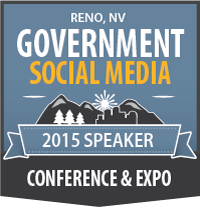At the beginning of the murder trial of the defendant, the judge instructed the jury that they should not to talk to any witnesses, the defendant, or attorneys. Nevertheless, one of the jurors (who knew the medical examiner through work) sent the witness a number of Facebook messages after her testimony. The messages included the following:
Juror to Witness: " I thought you did a great job today on the witness stand....I was in the jury...not sure if you recognized me or not!"
Witness to Juror: "I was thinking that was you. There is a risk of a mistrial if that gets out."
The witness notified the trial judge of the juror's communications. Although the judge informed the lawyers of the communications, the judge did not allow the defendant's attorney to question the juror about the communications. After the defendant was convicted of first degree murder, his attorney moved for a new trial based on the juror's communications and the judge's denial of his request to question the juror. The appellate court denied the defendant a new trial, characterizing the Facebook communications as "mere interactions" between a juror and a third person.
The state supreme court disagreed with the lower courts, finding that the judge should have conducted a hearing to determine whether the juror's communications with the witness was prejudicial to the defendant and his right to a fair trial. The court acknowledges that the majority of cases dealing with juror communications were handed down long before social media and Facebook. With new technology, and the ease of internet research, jurors are more likely to conduct their own research and investigations, increasing the risk of communications between jurors and third parties. For that reason, the supreme court held, it is even more critical that judges address these third party communications prior to sending the case to the jury and risking a prejudicial outcome. In this case, the supreme court determined that the trial judge should have immediately conducted a trial in open court after learning of the misconduct to have the juror and witness testify about their relationship and the effect of the communication on the juror's ability to serve on the jury.
While the supreme court acknowledged that not every communication between a juror and a third party requires a judge to disqualify the juror, declare a mistrial, or grant a new trial, there was insufficient information in this case to determine whether any of these actions were necessary to ensure a fair trial. As a result, the supreme court remanded the case back to the trial judge to conduct a hearing.








